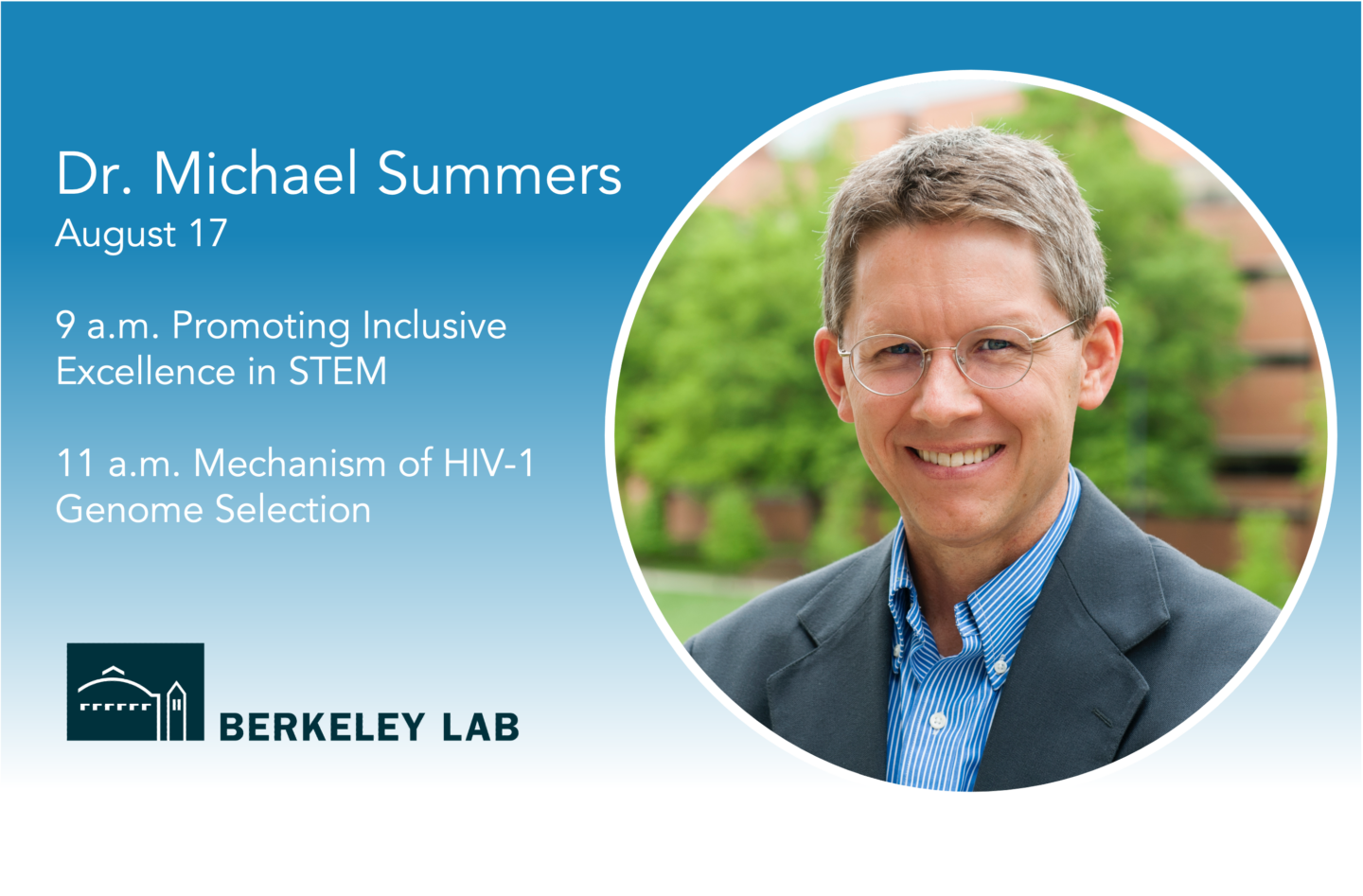Save the Dates
Please join Lab Director Mike Witherell on Thursday, Aug. 17, at 9 a.m. for a conversation with Dr. Michael Summers about promoting inclusive excellence in STEM. The discussion will be virtual on Zoom at streaming.lbl.gov.
Dr. Summers, a National Academy of Sciences member, will also discuss the Mechanism of HIV-1 Genome Selection at 11 a.m. on August 17. Add it to your calendar.
The Meyerhoff Scholars Program is a model for boosting diversity in the sciences, and its success is being replicated by other academic institutions nationwide. The program started at the University of Maryland, Baltimore County (UMBC), and in its 30 years, has seen hundreds of success stories of preparing minority students for careers in academic research and the sciences.
What is the secret to this success?
“The program is built on providing services, such as financial aid, tutoring, career counseling, and summer research experience, along with providing a community of support and caring,” said Dr. Michael Summers, Robert E. Meyerhoff Chair for Excellence in Research and Mentoring at UMBC. “We select students who want to obtain graduate degrees in STEM fields and then support them through their journey.”
To be considered for the program, the students must have an outstanding high school performance and grades, an interest in social justice issues and inclusion, and declare an intention to major in a STEM field. But it’s not just the students who are specially selected. The selection of professors and mentors is critical. “We look for variety in our mentors to match the variety in our students.”
The program has been successfully replicated by other institutions using the program’s 13 key components. The Chan Zuckerberg Initiative has provided $6.9 million to fund similar programs at UC Berkeley and UC San Diego to increase opportunities for students of color and also majority students who are interested in addressing issues faced by minority groups and are pursuing STEM degrees.
